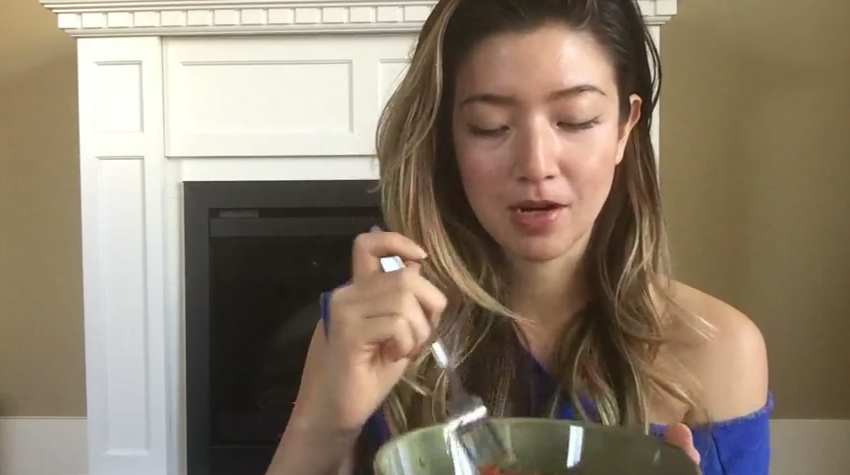
By Sophia Whittemore
AsAmNews Staff Writer
Growing up biracial, like growing up in any other POC family, presents both its positives and its negatives. Growing up half-latinx and half-Asian presents both its share of positives (speaking multiple languages, enjoying multiple types of food) and its challenges (not connecting with one side because you appear different than them, or having a language barrier due to a different accent).
https://www.youtube.com/watch?v=x5L24XCLJII
In the video above, Nicole speaks about her experiences growing up with a Nicaraguan mother and a Korean father. Now experiences differ for everyone, yet Nicole discusses challenges of having her Korean side of the family not accept her entirely because her Korean father married a Nicaraguan woman. She discusses challenges of not being able to fully grasp the languages from either side of her family, and the challenges that presented when trying to fit in. She also discusses how she never meets anyone else who is also Nicaraguan and Korean like her, adding to feelings of alienation despite believing, as a whole, that growing up with her unique heritage is still an amazing thing.
Rose Espíritu conducted an interview for Mixed Roots with Joseph, a young man who grew up in a Chinese and Mexican household. He states difficulties of his identity being somewhat diluted by growing up in America. His parents pushed him to try and fit in with the melting pot American culture, and any identity of Chinese/Mexican roots are from his own interest in his culture. He also discusses how he feels a pang of loss of never being able to fit in with people of his exact “Chinese-Mexican” background because finding fellow “Chinese-Mexican” biracial children is so difficult. It’s a conundrum a lot of multiracial kids face, of having two or more identities and not finding anyone who grew up in a household that’s exactly like theirs.
Celeste in an article for Vivala, speaks more on the courageous background of her parents who met when interracial marriages were rarer than they were today. Her parents (one Mexican and one Chinese) faced a slew of racial insults “Jap, greaser, wetback, Chink”, but they still got married at only 17 in Oakland, CA. They had to elope because nobody really supported their union, but they did so proudly.
Celeste then goes on to discuss that she had a lot of people guessing her to be “Filipina” despite her protests, and how that clashed with her strong sense of Latina-Chinese identity. She discusses how she was called a “wetback-chink” at age five by her, what she thought, best friend’s unreasonably angry sister. Celeste argues that the cultures of her Chinese and Mexican heritage are a lot closer than one may think, relying heavily on a strong sense of family and traditional respect. But her final statement stuck with me most when she talked about seeing more mixed-race children’s faces in her everyday life.
“The future is here, y’all.”
****
AsAmNews has Asian America in its heart. We’re an all-volunteer effort of dedicated staff and interns. You can show your support by liking our Facebook page at www.facebook.com/asamnews, following us on Twitter, sharing our stories, interning or joining our staff.

